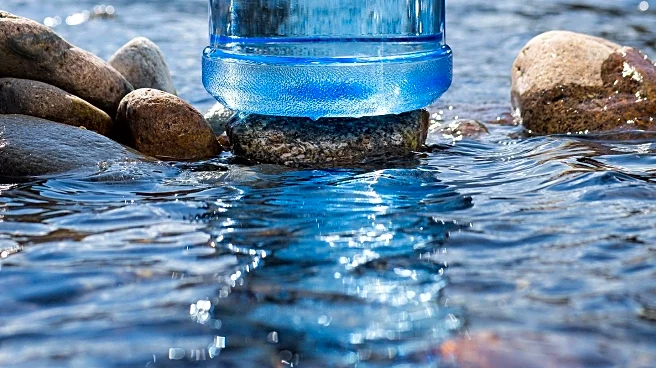What is the story about?
What's Happening?
In response to emergencies like storms or blackouts, individuals can prepare by making distilled water at home using simple kitchen tools. Distilled water, free of minerals and impurities, is essential for medical devices and cleaning wounds. The process involves heating tap water to vaporize it, then condensing the vapor back into water, leaving impurities behind. This method provides a reliable source of clean water during disruptions.
Why It's Important?
Having access to distilled water during emergencies is crucial for health and safety, especially for those relying on medical devices. The ability to produce distilled water at home ensures preparedness and reduces dependency on store-bought supplies, which may be scarce during crises. This practice supports self-sufficiency and resilience in the face of natural disasters and infrastructure failures.
What's Next?
As individuals become more aware of the benefits of home-distilled water, there may be increased interest in emergency preparedness and self-sufficiency practices. This could lead to greater demand for educational resources and tools to facilitate home distillation, as well as broader discussions on water security and sustainability.
Beyond the Headlines
The practice of home distillation raises questions about water quality and access, highlighting disparities in infrastructure and resources. Ensuring equitable access to clean water remains a critical issue, necessitating ongoing efforts to improve water systems and address environmental challenges.
















